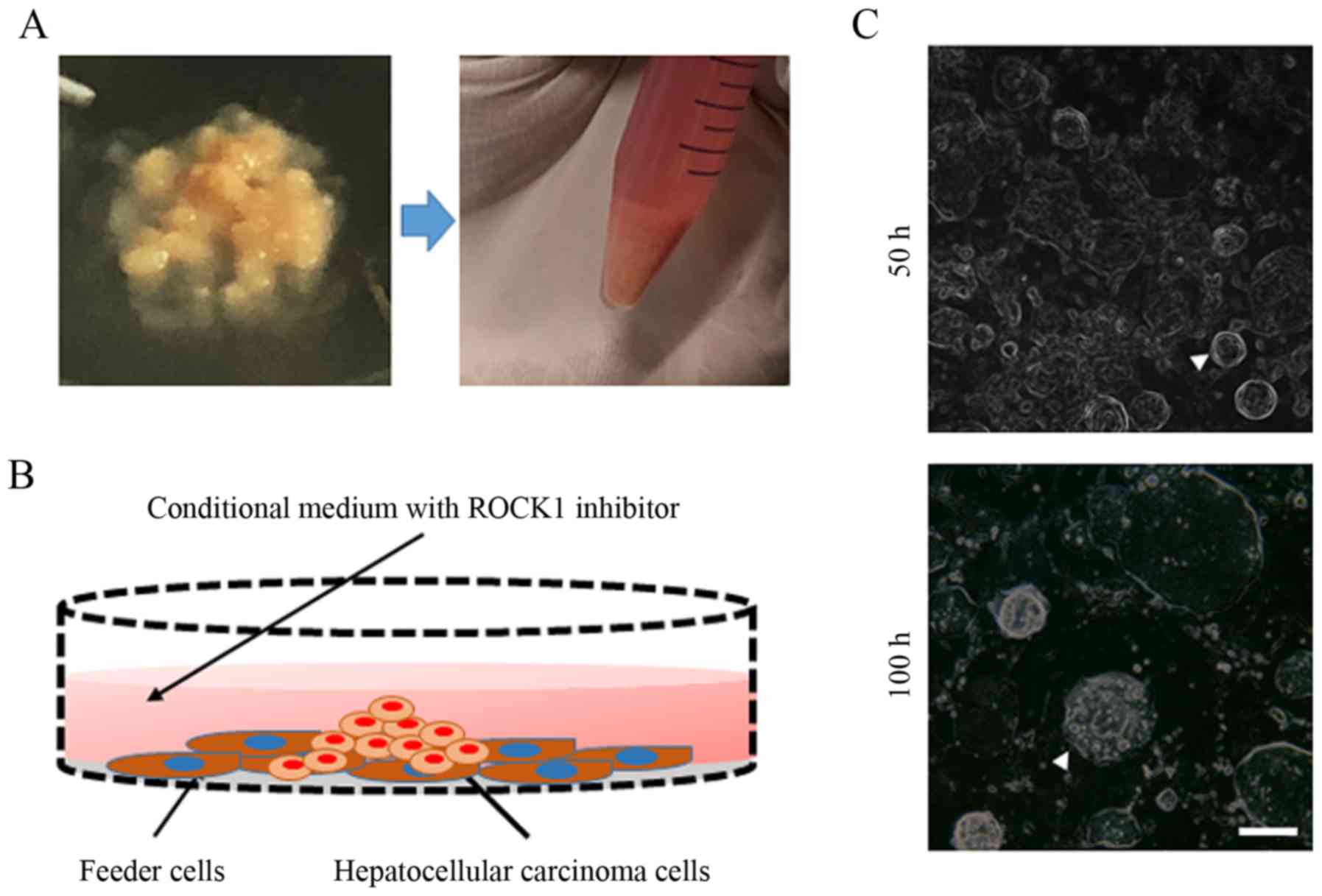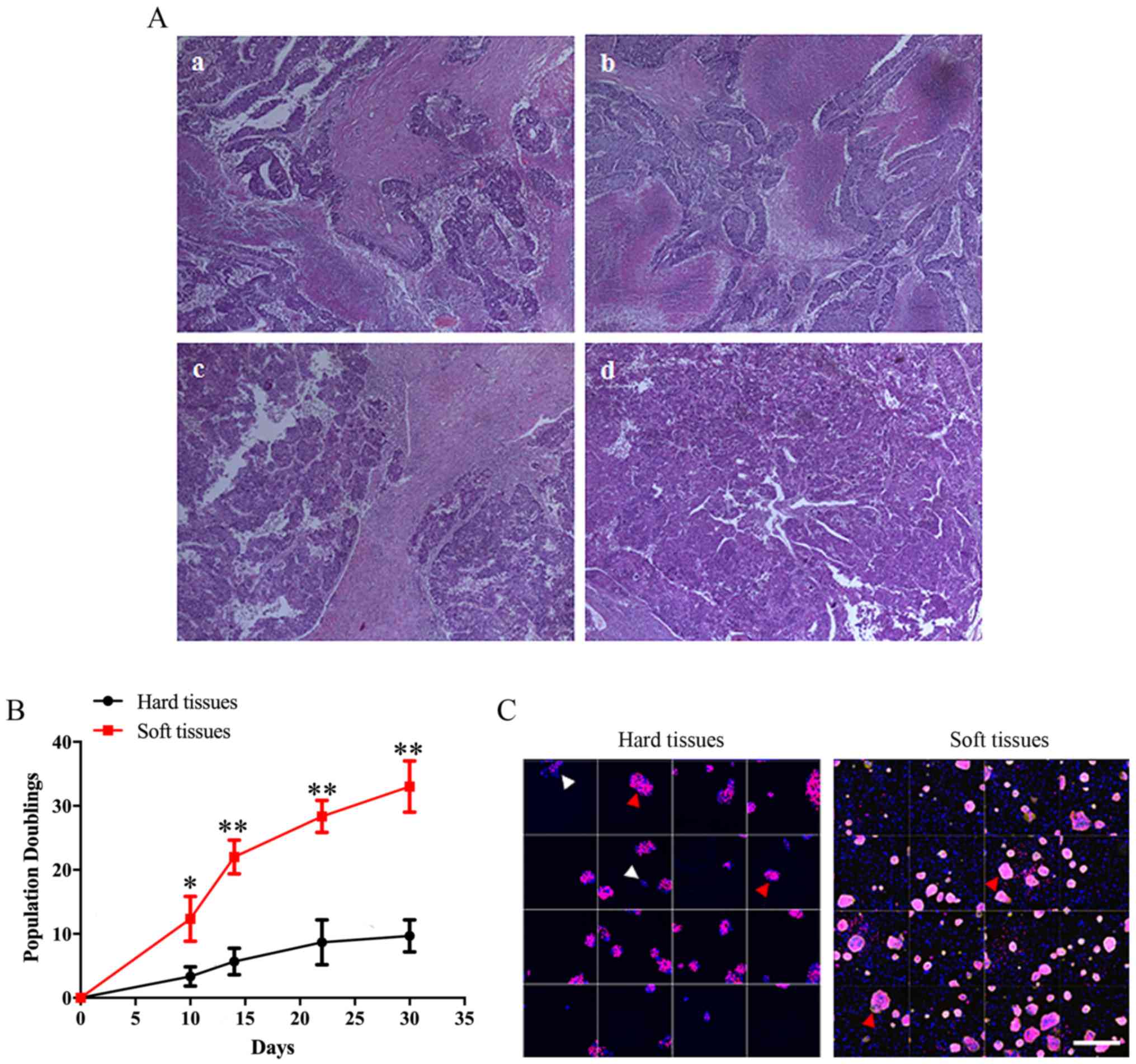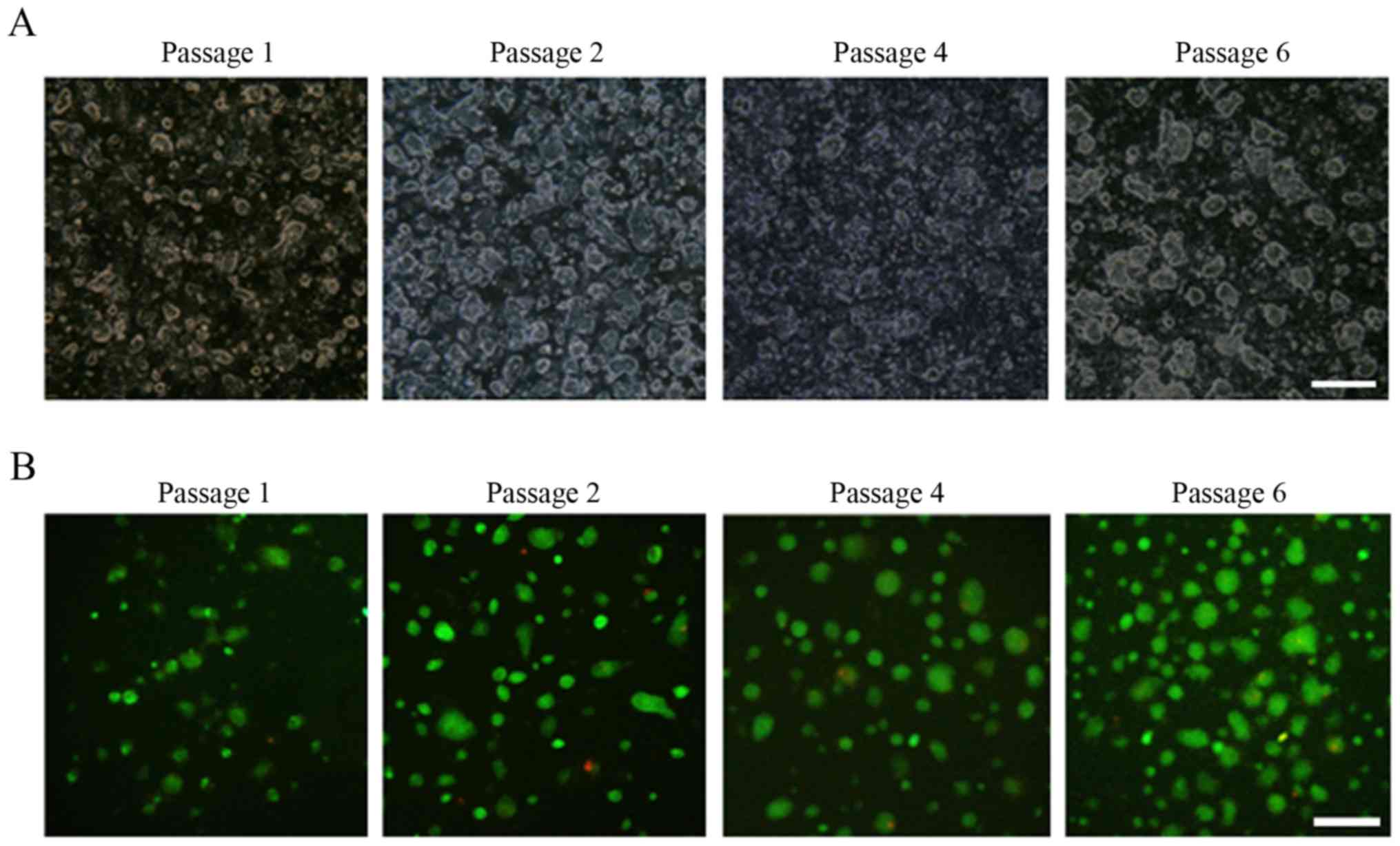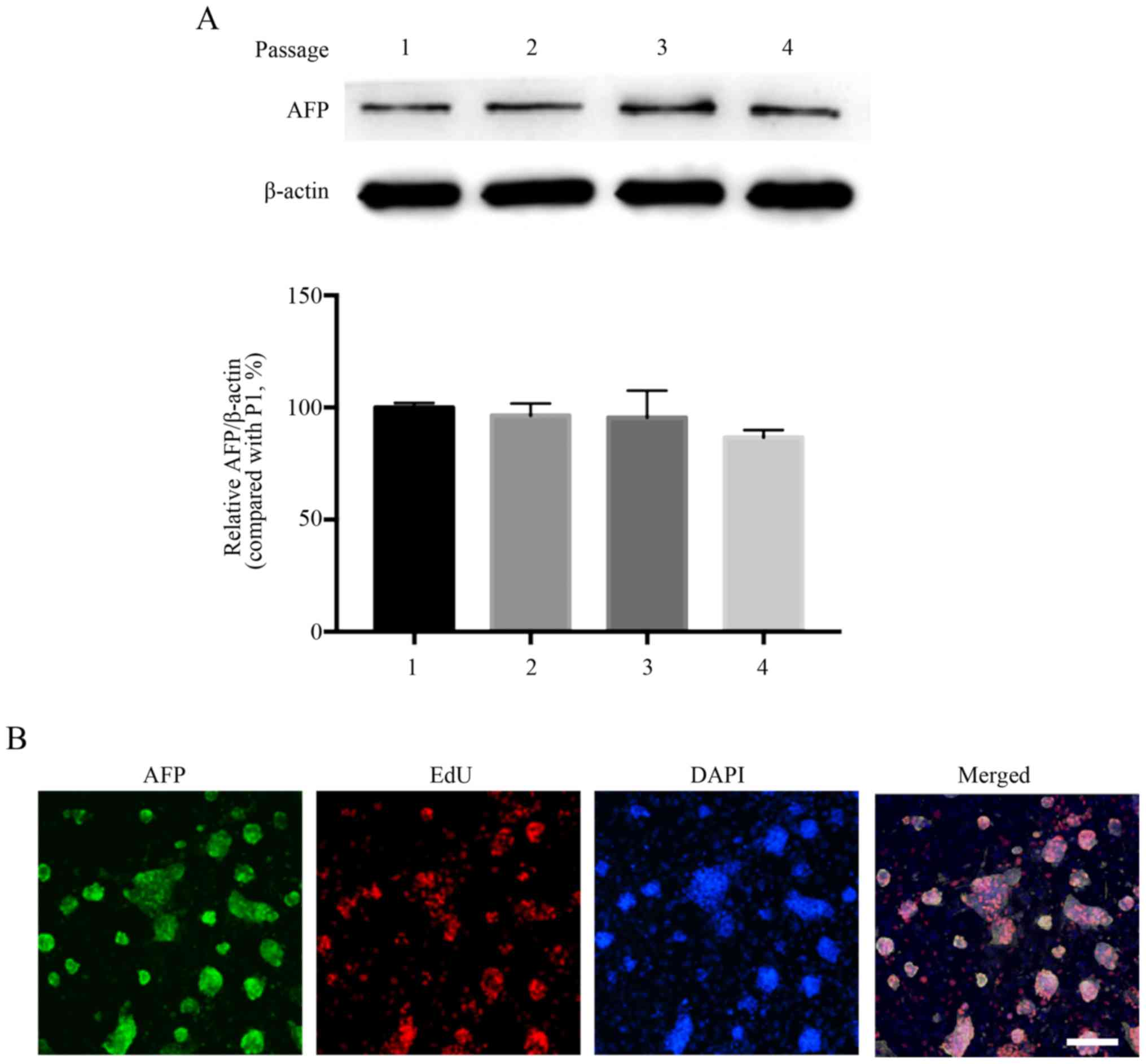|
1
|
Bertuccio P, Turati F, Carioli G,
Rodriguez T, La Vecchia C, Malvezzi M and Negri E: Global trends
and predictions in hepatocellular carcinoma mortality. J Hepatol.
67:302–309. 2017. View Article : Google Scholar : PubMed/NCBI
|
|
2
|
Ghouri YA, Mian I and Rowe JH: Review of
hepatocellular carcinoma: Epidemiology, etiology, and
carcinogenesis. J Carcinog. 16:12017. View Article : Google Scholar : PubMed/NCBI
|
|
3
|
Chan SL and Yeo W: Development of systemic
therapy for hepatocellular carcinoma at 2013: Updates and insights.
World J Gastroenterol. 20:3135–3145. 2014. View Article : Google Scholar : PubMed/NCBI
|
|
4
|
Tovoli F, Granito A, De Lorenzo S and
Bolondi L: Regorafenib for the treatment of hepatocellular
carcinoma. Drugs Today (Barc). 54:5–13. 2018. View Article : Google Scholar : PubMed/NCBI
|
|
5
|
Thorgeirsson SS and Grisham JW: Molecular
pathogenesis of human hepatocellular carcinoma. Nat Genet.
31:339–346. 2002. View Article : Google Scholar : PubMed/NCBI
|
|
6
|
Lohitesh K, Chowdhury R and Mukherjee S:
Resistance a major hindrance to chemotherapy in hepatocellular
carcinoma: An insight. Cancer Cell Int. 18:442018. View Article : Google Scholar : PubMed/NCBI
|
|
7
|
Huch M, Gehart H, van Boxtel R, Hamer K,
Blokzijl F, Verstegen MM, Ellis E, van Wenum M, Fuchs SA, de Ligt
J, et al: Long-term culture of genome-stable bipotent stem cells
from adult human liver. Cell. 160:299–312. 2015. View Article : Google Scholar : PubMed/NCBI
|
|
8
|
Liu X, Ory V, Chapman S, Yuan H, Albanese
C, Kallakury B, Timofeeva OA, Nealon C, Dakic A, Simic V, et al:
ROCK inhibitor and feeder cells induce the conditional
reprogramming of epithelial cells. Am J Pathol. 180:599–607. 2012.
View Article : Google Scholar : PubMed/NCBI
|
|
9
|
Liu X, Krawczyk E, Suprynowicz FA,
Palechor-Ceron N, Yuan H, Dakic A, Simic V, Zheng YL, Sripadhan P,
Chen C, et al: Conditional reprogramming and long-term expansion of
normal and tumor cells from human biospecimens. Nat Protoc.
12:439–451. 2017. View Article : Google Scholar : PubMed/NCBI
|
|
10
|
Mahajan AS, Sugita BM, Duttargi AN, Saenz
F, Krawczyk E, McCutcheon JN, Fonseca AS, Kallakury B, Pohlmann P,
Gusev Y, et al: Genomic comparison of early-passage conditionally
reprogrammed breast cancer cells to their corresponding primary
tumors. PLoS One. 12:e01861902017. View Article : Google Scholar : PubMed/NCBI
|
|
11
|
Alamri AM, Kang K, Groeneveld S, Wang W,
Zhong X, Kallakury B, Hennighausen L, Liu X and Furth PA: Primary
cancer cell culture: Mammary-optimized vs conditional
reprogramming. Endocr Relat Cancer. 23:535–554. 2016. View Article : Google Scholar : PubMed/NCBI
|
|
12
|
Gao B, Huang C, Kernstine K, Pelekanou V,
Kluger Y, Jiang T, Peters-Hall JR, Coquelin M, Girard L, Zhang W,
et al: Non-malignant respiratory epithelial cells preferentially
proliferate from resected non-small cell lung cancer specimens
cultured under conditionally reprogrammed conditions. Oncotarget.
8:11114–11126. 2017.PubMed/NCBI
|
|
13
|
Saeed K, Rahkama V, Eldfors S, Bychkov D,
Mpindi JP, Yadav B, Paavolainen L, Aittokallio T, Heckman C,
Wennerberg K, et al: Comprehensive Drug Testing of Patient-derived
Conditionally Reprogrammed Cells from Castration-resistant Prostate
Cancer. Eur Urol. 71:319–327. 2017. View Article : Google Scholar : PubMed/NCBI
|
|
14
|
Timofeeva OA, Palechor-Ceron N, Li G, Yuan
H, Krawczyk E, Zhong X, Liu G, Upadhyay G, Dakic A, Yu S, et al:
Conditionally reprogrammed normal and primary tumor prostate
epithelial cells: A novel patient-derived cell model for studies of
human prostate cancer. Oncotarget. 8:22741–22758. 2017. View Article : Google Scholar : PubMed/NCBI
|
|
15
|
Sette G, Salvati V, Giordani I, Pilozzi E,
Quacquarini D, Duranti E, De Nicola F, Pallocca M, Fanciulli M,
Falchi M, et al: Conditionally reprogrammed cells (CRC) methodology
does not allow the in vitro expansion of patient-derived primary
and metastatic lung cancer cells. Int J Cancer. 143:88–99. 2018.
View Article : Google Scholar : PubMed/NCBI
|
|
16
|
Broutier L, Mastrogiovanni G, Verstegen
MM, Francies HE, Gavarró LM, Bradshaw CR, Allen GE, Arnes-Benito R,
Sidorova O, Gaspersz MP, et al: Human primary liver cancer-derived
organoid cultures for disease modeling and drug screening. Nat Med.
23:1424–1435. 2017. View
Article : Google Scholar : PubMed/NCBI
|
|
17
|
World Medical A; World Medical
Association, : World Medical Association Declaration of Helsinki:
Ethical principles for medical research involving human subjects.
JAMA. 310:2191–2194. 2013. View Article : Google Scholar : PubMed/NCBI
|
|
18
|
Thery C, Amigorena S, Raposo G and Clayton
A: Isolation and characterization of exosomes from cell culture
supernatants and biological fluids. Curr Protoc Cell Biol.
30:3.22.1–3.22.29. 2006. View Article : Google Scholar
|
|
19
|
Zhu Y, Yang Y, Guo J, Dai Y, Ye L, Qiu J,
Zeng Z, Wu X, Xing Y, Long X, et al: Ex vivo 2D and 3D HSV-2
infection model using human normal vaginal epithelial cells.
Oncotarget. 8:15267–15282. 2017.PubMed/NCBI
|
|
20
|
Plaks V, Kong N and Werb Z: The cancer
stem cell niche: How essential is the niche in regulating stemness
of tumor cells? Cell Stem Cell. 16:225–238. 2015. View Article : Google Scholar : PubMed/NCBI
|
|
21
|
Agarwal S and Rimm DL: Making every cell
like HeLa a giant step for cell culture. Am J Pathol. 180:443–445.
2012. View Article : Google Scholar : PubMed/NCBI
|
|
22
|
Suprynowicz FA, Upadhyay G, Krawczyk E,
Kramer SC, Hebert JD, Liu X, Yuan H, Cheluvaraju C, Clapp PW,
Boucher RC Jr, et al: Conditionally reprogrammed cells represent a
stem-like state of adult epithelial cells. Proc Natl Acad Sci USA.
109:20035–20040. 2012. View Article : Google Scholar : PubMed/NCBI
|
|
23
|
Gillet JP, Varma S and Gottesman MM: The
clinical relevance of cancer cell lines. J Natl Cancer Inst.
105:452–458. 2013. View Article : Google Scholar : PubMed/NCBI
|
|
24
|
Hensley CT, Wasti AT and DeBerardinis RJ:
Glutamine and cancer: Cell biology, physiology, and clinical
opportunities. J Clin Invest. 123:3678–3684. 2013. View Article : Google Scholar : PubMed/NCBI
|
|
25
|
Yu F, Lu Y, Tao L, Jiang YY, Lin DC, Wang
L, Petersson F, Yoshiyama H, Koeffler PH, Goh BC, et al:
Non-malignant epithelial cells preferentially proliferate from
nasopharyngeal carcinoma biopsy cultured under conditionally
reprogrammed conditions. Sci Rep. 7:173592017. View Article : Google Scholar : PubMed/NCBI
|
|
26
|
Reya T, Morrison SJ, Clarke MF and
Weissman IL: Stem cells, cancer, and cancer stem cells. Nature.
414:105–111. 2001. View
Article : Google Scholar : PubMed/NCBI
|
|
27
|
McMahon BJ, Alberts SR, Wainwright RB,
Bulkow L and Lanier AP: Hepatitis B-related sequelae. Prospective
study in 1400 hepatitis B surface antigen-positive Alaska native
carriers. Arch Intern Med. 150:1051–1054. 1990. View Article : Google Scholar : PubMed/NCBI
|
|
28
|
Zhang BH, Yang BH and Tang ZY: Randomized
controlled trial of screening for hepatocellular carcinoma. J
Cancer Res Clin Oncol. 130:417–422. 2004. View Article : Google Scholar : PubMed/NCBI
|


















